Mozambique: Mais Integridade calls for transparency in appointment of civil society personalities - ...
Those who could clarify the air crash have left the scene – Chissano
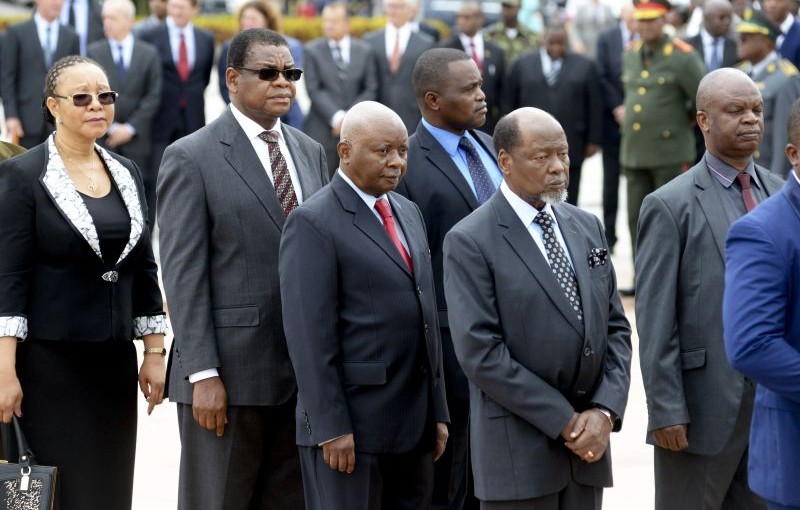
Lusa / Former presidents of Mozambique Joaquim Chissano (right) and Armando Guebuza (left) photographed at the ceremony to honour Samora Machel and the victims of Mbzuini yesterday in Maputo
Former president of Mozambique Joaquim Chissano said yesterday that the apartheid personalities who could potentially clear up the mystery surrounding the air crash that killed Samora Machel thirty years ago have departed the stage, and it is difficult to ascertain the truth.
“What is missing here is that the main actors are either no longer on the scene or it is difficult to find them, because apartheid is over and many of them have died,” Joaquim Chissano told reporters on the sidelines of the ceremony in Maputo in honour of the first Mozambican head of state, who died on October 19, 1986.
Chissano, who served as Foreign Minister under President Machel and succeeded him as head of state, said that he was referring to former South African white minority apartheid regime president Pieter Botha and former defence minister Magnus Malan, both of whom have died, and “the generals who could shed light on the secrets revealed by the plane’s black box during the investigations”.
Chissano was alluding to the false navigation beacon allegedly placed in Mbuzini, where the aircraft carrying Machel crashed, to misdirect it on its approach to Maputo airport.
To date, this issue “has not been examined fully, and it’s hard to examine it now”, Chissano said. The existence of false beacon could be the key to explaining the downing of the Russian Tupolev 134 plane, killing Machel and 34 members of his delegation as they returned to Maputo from Zambia.
The Mozambican authorities have claimed several times that the plane was brought down intentionally by the then South African apartheid regime, but investigations have always been inconclusive, with doubts about the existence of the beacon and military exercises supposedly being conducted in the disaster area persisting.
“The investigation was inconclusive because those who could answer the questions refused to do so, and others refused to continue to investigate until they died,” said the former head of state, adding that the South African army held many secrets, including, possibly “a secret army within the army, that did whatever it wanted to and killed across the region, from Angola to Dar es Salaam”.
Referring to the statesman’s death, Mozambican President Filipe Nyusi said yesterday at a ceremony commemorating Machel that “justice must still be done”, while on Monday Prime Minister Carlos Agostinho do Rosario declared at a ceremony in Mbuzini that Machel’s death was a murder whose explanation was still “a national priority and a patriotic imperative”.
But Joaquim Chissano said that it was difficult to believe that the truth would still be uncovered.
“I cannot see how. Hope is always the last to die, but it’s not as if I can clearly see any path that could lead to this,” he said, adding that if he himself were tasked with the investigation, he would not know where to start.
“Let’s put it like this: May justice one day be done, may light one day be shed on it, but how, I cannot say.”


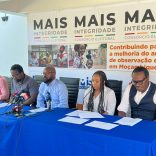
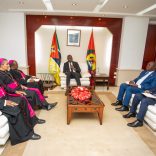
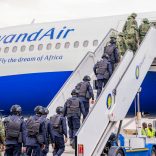
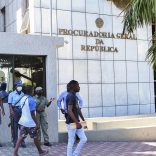
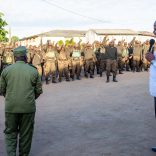
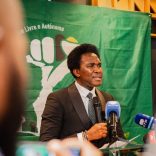





Leave a Reply
Be the First to Comment!
You must be logged in to post a comment.
You must be logged in to post a comment.